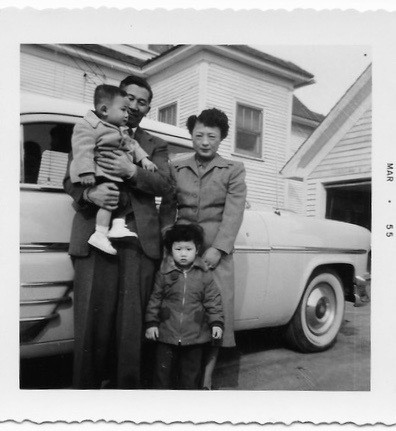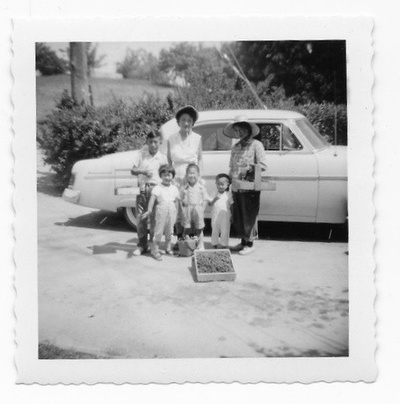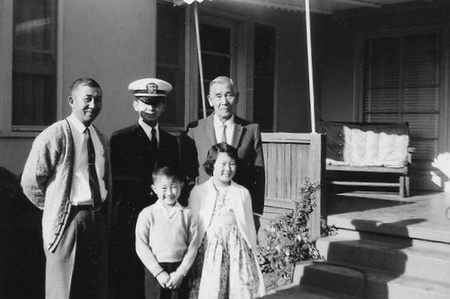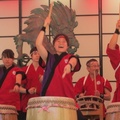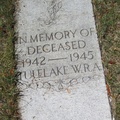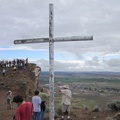[In April 2017 I was asked to speak on what my Japanese American identity means to me, and how that informs my values of social justice, particularly in relation to my being “third generation ” (Sansei). This was shortly after the second attempt at a Muslim Ban was blocked by the courts but before the third attempt was upheld. It was also a year prior to the “zero tolerance” policy adopted by the Justice Department that precipitated the crisis of family separation, mass imprisonment of children, and denial of lawful asylum claims at the southern border. Sadly, my updated response is even more relevant given these events. — Stanley N. Shikuma]
Some would say I am 100% Japanese by birth – by ancestry and heritage, by physical appearance, by genetics.
Some would say I am 100% American by birth – by where I was born, by language and culture, by law.
Japanese American is how I was born and raised, and it is who I am. It is my family and my community.
I have always been proud of my heritage and comfortable in my own skin. I’m sure growing up in a strong JA community in Watsonville helped. I believe this comfort with my own identity has made it easier to appreciate and admire other cultures, countries, ethnicities, religions, sexual identities, and ways of life. It’s engendered a greater tolerance of diversity in my life — or maybe something more than mere tolerance.
Maybe that comfort leads to a greater curiosity about – and a deeper appreciation of – the great multitude of differences between peoples and communities, a diversity that reflects back and accentuates the even greater similarities we all share.
As a Sansei, I grew up having only a vague idea about the WWII Concentration Camps. My Nisei parents, like most Nisei, did not talk about the Camps openly, yet it was clearly a touchstone that demarcated our lives. “Before the War” and “After the War” were two different realities, different worlds that I could sense even through the studied attempts by my parents to hide it from the kids – no doubt to spare us the pain, or perhaps the shame.
Shikataganai – it can’t be helped. Gaman – persevere and carry on.
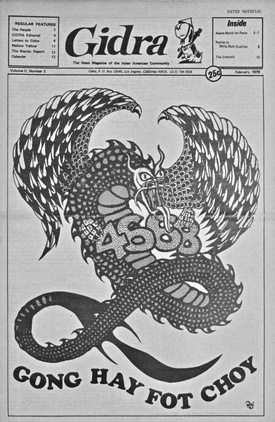
Courtesy of Gidra, Densho
When I learned what really happened from talking with my nesan (older sister) who was drawn into the Asian American Movement at UCLA, when I read the copies of Gidra and other movement literature she sent me, and when I sought out the articles and books about the Camps that began to appear during the 1960’s, I was appalled and angry. Looking at my Issei grandparents and Nisei parents, aunts, uncles, and friends, I realized how hard they had worked to rebuild our lives and felt grateful for the sacrifice and effort they put in — yet outraged by what our government had put them through. I guess this fueled a sense of justice – and injustice – in my life.
My Nisei parents raised me to respect everyone because every human being deserves respect — the kind of respect the government and too many of our fellow citizens failed to extend to them. They knew what it felt like to be disrespected, distrusted, and pre-judged, so maybe that is why they taught me to look at and respect everyone’s humanity rather than their titles, power or wealth.
My Nisei parents raised me to judge people on their actions (what they did) rather than their words (what they said). Because our government said a lot about the noble words enshrined in the Constitution and the Bill of Rights but failed to live up to them during WWII, when the President, the Congress and even the Supreme Court surrendered our civil rights in deference to racist arguments of “military necessity”. So, I learned to lead by example; to do unto others as you would have them do unto you; to never ask others to do anything I was not willing to do myself.
My Nisei parents raised me to look out for others less fortunate; to pay things forward; and to appreciate that what goes around, comes around. My father told me that many Japanese American farmers lost their land and their belongings during WWII — but not our family, thanks to Tony Tomasello.
Tony Tomasello was an Italian immigrant, similar in many ways to my grandfather. Both immigrated to America as teenagers, got into farming and started families. Both were hard working. Both believed in the dream of opportunity and equality in America. And both spoke almost no English.
Mr. Tomosello was an apple grower, and my grandfather worked for him planting some of his orchards before starting a strawberry farm of his own. When World War II came and the Shikuma family was taken away to camp, Tony Tomosello offered to take care of the family farm until we got back. He knew that if the government had treated Italian immigrants the way they were treating Japanese immigrants, he and his family would have been locked up too. He didn’t think that was fair, so he did what he thought was right by helping Japanese American families that he knew. And thanks to him – a man of his word, a man of honor, a true American – our family farm survived the war.
Now we find ourselves engulfed in a new era of fear and prejudice. Racism, war-like hysteria, and a failure of political leadership threaten to once again lead us away from our democratic principles. With new declarations of a national emergency at our borders, many immigrant groups and Muslims in general are being targeted as disloyal, untrustworthy, criminal. Calls are being made to deny them asylum rights, repudiate their immigration papers, ignore their citizenship rights, treat them differently, and even lock them up and deport them, based solely on religion, national origin, or immigration status.
As Japanese Americans, our families have lived through this before. Our communities have been targeted like this before.
We know how this story could end.
And we say, “Never Again!”
So now, it is our turn to step up and help however we can.
To be the voice of reason,
To bear witness to past wrongs,
To ensure that Democracy endures, that Civil Rights are respected, and that Justice prevails.
In this day and age, that is what it means to be Japanese American.
That is what it means to be truly American.
Never Again Is NOW!
*This article was originally published on eastwindezine.com on April 2017.
© 2019 Stan Shikuma


